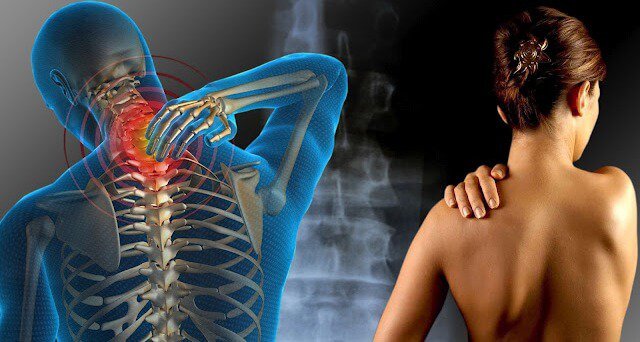Fibromyalgia: The Pain Society Doesn't Understand

Fibromyalgia was recognized as a disease by the World Health Organization (WHO) in 1992. Today, fibromyalgia affects 4% of the population and mostly, almost 90% are women.
It is known as the “invisible disease” because it affects all the soft tissues of the musculoskeletal system and cannot be easily diagnosed through medical tests. Fibromyalgia is not seen. It does not leave marks on the skin or produce wounds that others can see for it to be identified. It’s a lonely, desperate pain.
Suffering from fibromyalgia is very hard: I do not know how I will wake up today, if I’ll be able to move, if I’ll be able to laugh or if I’ll just want to cry… What I do know is that I’m not pretending: I suffer a chronic illness.
At the moment, the etiology of this disease is still unknown. However, what we do know is that every year more people are diagnosed. Therefore,the most globalized intervention possible should be given which would include the relevance of its biopsychosocial aspect.
So today in our space we want to give you some basic guidelines so you can face the disease with strength by improving your quality of life as much as possible.

Fibromyalgia: the real disease that is not seen
When a person cannot get out of bed because he feels that “burning needles” are making his joints hurt, he’s not faking or looking for an excuse not to go to work. Those who suffer fibromyalgia must add their own illness with social incomprehension, and with the feeling of being invisible in a world that only believes in what is seen.
The main problem of FM (fibromyalgia) is in the controversy over whether its origin is psychological or organic. These would be the main conclusions that the experts have indicated:
Possible origin of fibromyalgia
It is necessary to clarify first that there is no medical evidence linking fibromyalgia with a psychiatric illness.
Some authors mention that about 47% of those patients suffer from anxiety, however, we must take into account that this psychological dimension can be one’s own response to the pain of the disease itself.
According to a study published in the journal “Arthritis & Rheumatology” fibromyalgia sufferers experience increased sensitivity to everyday sensory stimulation.
By MRIs, researchers found when exposed to visual, tactile, olfactory or auditory stimuli, the regions of the brain involved in sensory integration suffer greater overstimulation than usual.
People with fibromyalgia have an increased number of blood vessels in their sensory nerve fibers, so that any stimulus or change in temperature results in severe pain.

Something to keep in mind is that any emotional factor will increase the sensation of pain in those nerve fibers. A stressful situation will result in overstimulation and pain. In turn, the feeling of pain and chronic fatigue throws a person into the helplessness and even depression.
Thus, we fall into in a vicious circle where a disease of organic origin is augmented by the psychological factor. Therefore, it is worth controlling the emotional dimension to attenuate or at least “control” the etiologic origin.
Depression, A Disease of the Heart
Everything has lost its meaning in my life, nothing interests me and nothing surprises me, I feel empty … depression. See more
Psychological strategies to cope with fibromyalgia
Chronic pain is part of our social reality, with fibromyalgia (FM) being an extreme example. Now that we know that factors such as stress or sadness will increase the feeling of suffering, it is important to introduce some basic coping strategies that can help us.
Today you woke up, you got dressed and you could go outside. No one else will understand your achievements, but these small victories are important to you and must give you strength: you can be stronger than your disease.

5 keys to obtain a better quality of life
First, we must be clear that the same strategies are not going to serve us all. You must find those strategies that work for you according to yourself and your needs. To do this, test out and select those that produce the most relief for you.
- Understand your illness. This means being in touch with specialists, doctors and psychologists. We need multidisciplinary treatments so you can “understand” your disease. Thus, you will be safer and more prepared.
- Establish a positive attitude in your life. We know it’s not easy, but instead of reacting to pain, it is better to accept it and treat it, not get depressed. Do not hesitate to talk to people who suffer the same disease, do not isolate yourself or hold a grudge with those around you.
- Look for activities that allow you to cope with stress and anxiety: there are very suitable relaxation techniques that can help. Yoga can also be very beneficial.
- Never lose control of your life, do not let the pain control you. To do that, establish moments of leisure each day, no matter how short they may be. Take a walk and do not avoid social contact.
- Pay attention to your emotions, your thinking and your language. What we think and feel has a direct influence on the disease. If we say things like “I’m not able to get up”, “This has no solution” or “I have no strength”, it will increase your suffering.

Wounds of The Soul and Headaches
What’s behind the frequent headaches? Stress, anxiety, poor diet and also all those wounds of the soul that we externalize in… More »
Fibromyalgia was recognized as a disease by the World Health Organization (WHO) in 1992. Today, fibromyalgia affects 4% of the population and mostly, almost 90% are women.
It is known as the “invisible disease” because it affects all the soft tissues of the musculoskeletal system and cannot be easily diagnosed through medical tests. Fibromyalgia is not seen. It does not leave marks on the skin or produce wounds that others can see for it to be identified. It’s a lonely, desperate pain.
Suffering from fibromyalgia is very hard: I do not know how I will wake up today, if I’ll be able to move, if I’ll be able to laugh or if I’ll just want to cry… What I do know is that I’m not pretending: I suffer a chronic illness.
At the moment, the etiology of this disease is still unknown. However, what we do know is that every year more people are diagnosed. Therefore,the most globalized intervention possible should be given which would include the relevance of its biopsychosocial aspect.
So today in our space we want to give you some basic guidelines so you can face the disease with strength by improving your quality of life as much as possible.

Fibromyalgia: the real disease that is not seen
When a person cannot get out of bed because he feels that “burning needles” are making his joints hurt, he’s not faking or looking for an excuse not to go to work. Those who suffer fibromyalgia must add their own illness with social incomprehension, and with the feeling of being invisible in a world that only believes in what is seen.
The main problem of FM (fibromyalgia) is in the controversy over whether its origin is psychological or organic. These would be the main conclusions that the experts have indicated:
Possible origin of fibromyalgia
It is necessary to clarify first that there is no medical evidence linking fibromyalgia with a psychiatric illness.
Some authors mention that about 47% of those patients suffer from anxiety, however, we must take into account that this psychological dimension can be one’s own response to the pain of the disease itself.
According to a study published in the journal “Arthritis & Rheumatology” fibromyalgia sufferers experience increased sensitivity to everyday sensory stimulation.
By MRIs, researchers found when exposed to visual, tactile, olfactory or auditory stimuli, the regions of the brain involved in sensory integration suffer greater overstimulation than usual.
People with fibromyalgia have an increased number of blood vessels in their sensory nerve fibers, so that any stimulus or change in temperature results in severe pain.

Something to keep in mind is that any emotional factor will increase the sensation of pain in those nerve fibers. A stressful situation will result in overstimulation and pain. In turn, the feeling of pain and chronic fatigue throws a person into the helplessness and even depression.
Thus, we fall into in a vicious circle where a disease of organic origin is augmented by the psychological factor. Therefore, it is worth controlling the emotional dimension to attenuate or at least “control” the etiologic origin.
Depression, A Disease of the Heart
Everything has lost its meaning in my life, nothing interests me and nothing surprises me, I feel empty … depression. See more
Psychological strategies to cope with fibromyalgia
Chronic pain is part of our social reality, with fibromyalgia (FM) being an extreme example. Now that we know that factors such as stress or sadness will increase the feeling of suffering, it is important to introduce some basic coping strategies that can help us.
Today you woke up, you got dressed and you could go outside. No one else will understand your achievements, but these small victories are important to you and must give you strength: you can be stronger than your disease.

5 keys to obtain a better quality of life
First, we must be clear that the same strategies are not going to serve us all. You must find those strategies that work for you according to yourself and your needs. To do this, test out and select those that produce the most relief for you.
- Understand your illness. This means being in touch with specialists, doctors and psychologists. We need multidisciplinary treatments so you can “understand” your disease. Thus, you will be safer and more prepared.
- Establish a positive attitude in your life. We know it’s not easy, but instead of reacting to pain, it is better to accept it and treat it, not get depressed. Do not hesitate to talk to people who suffer the same disease, do not isolate yourself or hold a grudge with those around you.
- Look for activities that allow you to cope with stress and anxiety: there are very suitable relaxation techniques that can help. Yoga can also be very beneficial.
- Never lose control of your life, do not let the pain control you. To do that, establish moments of leisure each day, no matter how short they may be. Take a walk and do not avoid social contact.
- Pay attention to your emotions, your thinking and your language. What we think and feel has a direct influence on the disease. If we say things like “I’m not able to get up”, “This has no solution” or “I have no strength”, it will increase your suffering.

Wounds of The Soul and Headaches
What’s behind the frequent headaches? Stress, anxiety, poor diet and also all those wounds of the soul that we externalize in… More »
This text is provided for informational purposes only and does not replace consultation with a professional. If in doubt, consult your specialist.







